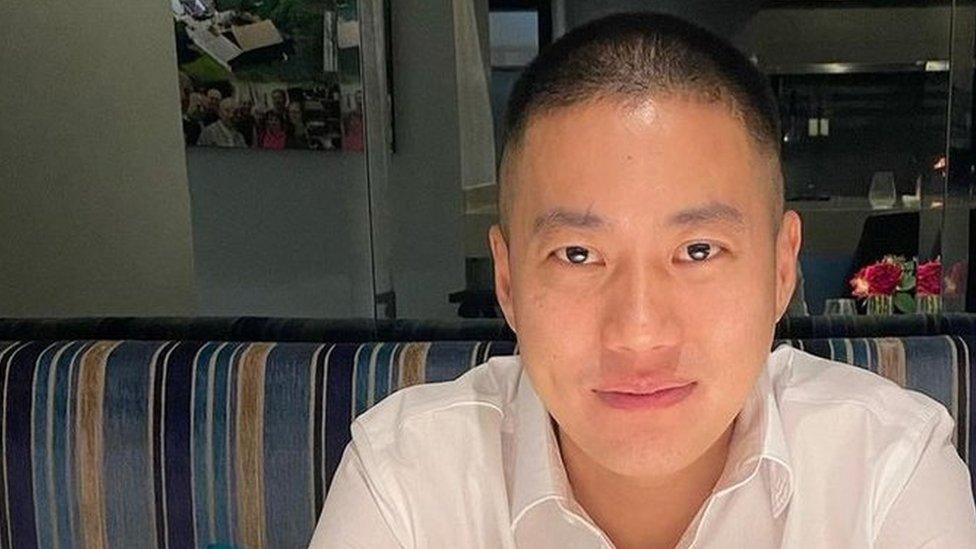Joe Ferrari: The high-rolling life of Thailand's controversial ex-police chief
- Published
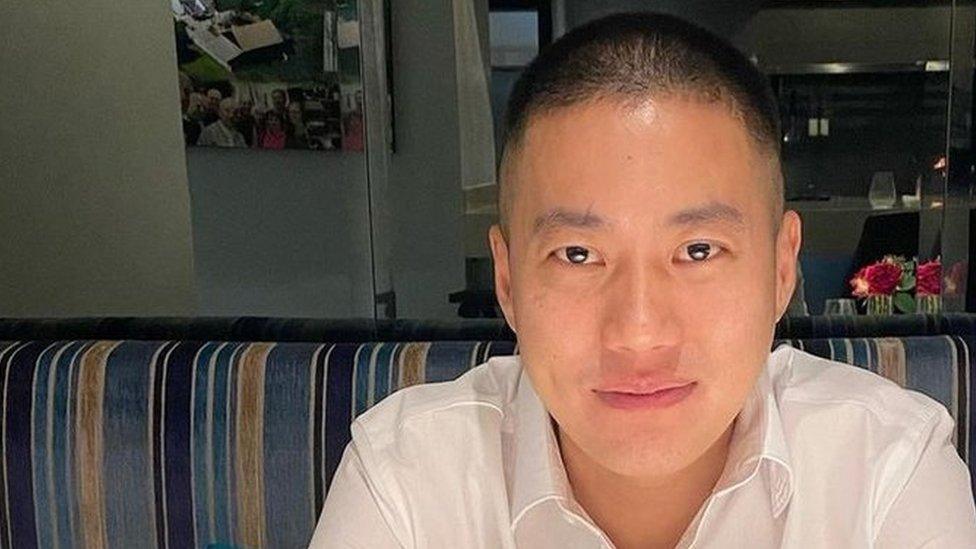
Thitisan Utthanaphon is reportedly fond of fast cars and known as "Joe Ferrari"
When a leaked video last month showed a local police chief suffocating a suspect, it was not just the revelation of torture and death in police custody which shocked the Thai public.
The former police chief, Colonel Thitisant Utthanaphon, was more commonly known by the moniker "Joe Ferrari" - an apparent reference to his expensive tastes.
He, along with six others, was pictured wrapping plastic bags around the head of a 24-year-old arrested for selling methamphetamine pills. The suspect eventually died. He has admitted to mistreating the suspect but denied demanding a bribe.
When police raided Mr Thitisan's luxury home in Bangkok they found a dozen high-priced cars.
The Customs department believes he owns at least 42 cars, one of them a rare Lamborghini Aventador Anniversario, of which only 100 were made, priced in Thailand at 47 million baht ($1.45m; £1.05m).
So how did he amass such wealth, at the age of 39, on a salary of just 43,000 baht - or just over $1,000 - a month?
The route to success and wealth
Had he not decided to put six plastic bags over the head of the drug suspect, had he not failed to disable one of the CCTV cameras in the room or had another officer not decided to send the video from that camera to a lawyer, little more might have been heard of Joe Ferrari.
After failing to resuscitate the suspect, the police took him to hospital and, according to investigating officers, insisted he had collapsed during his arrest. Investigations of abuses by the security forces in Thailand rarely go far.
Mr Thitisant's dramatic rise and fall tells us a lot about the Thai police force.
The popular image most Thais have from their own experience, is of bumbling lower-ranked officers engaged in petty acts of extortion and self-enrichment. This belies the reality of an institution which has long had an essential role in the opaque power networks which run the country.
That is why many ambitious young Thais see the police as a quick route to success and wealth.
"The police have long been central to Thailand's political power structure," says Paul Chambers at the Center of ASEAN Community Studies in Naresuan University.
"Because they have preserved it, armed and legitimised as a domestic enforcement agency for the palace, the army, and for powerful people. In return they are allowed to operate endless extortion rackets with impunity as a sort of legal mafia. As a result, Thailand often 'discovers' Joe Ferrari-type cases in the police."
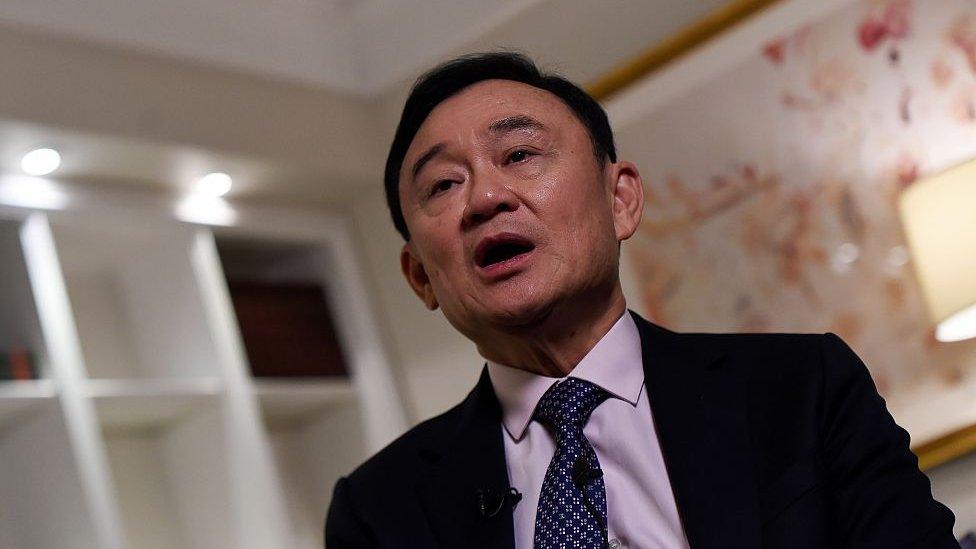
Thaksin Shinawatra was also a former student at the Armed Forces Academies Preparatory School
Born into an ordinary family in Bangkok, Mr Thitisant won a place at the prestigious Armed Forces Academies Preparatory School, and went on to the Police Cadet Academy, graduating in 2003.
Former Prime Minister Thaksin Shinawatra chose exactly the same career path. Both institutions enable students to make important connections with future military and police leaders.
From there Mr Thitisant went into the narcotics suppression unit in Bangkok, and then for a period in Narathiwat in the deep south, near the notoriously porous border with Malaysia.
Policing the huge illegal drugs trade in Thailand is known to be a rich source of illicit funds for officers. At some point Mr Thitisant also got involved in confiscating luxury cars, another lucrative operation.
Thailand imposes taxes of more than 300% on supercars like Ferraris, Rolls-Royces and Lamborghinis, for which, in a country with plenty of billionaires, there is a large market.
This has created a substantial business in tax avoidance, either by bribing customs officers to report a much lower value for the cars, or describing them as parts or partially-assembled.
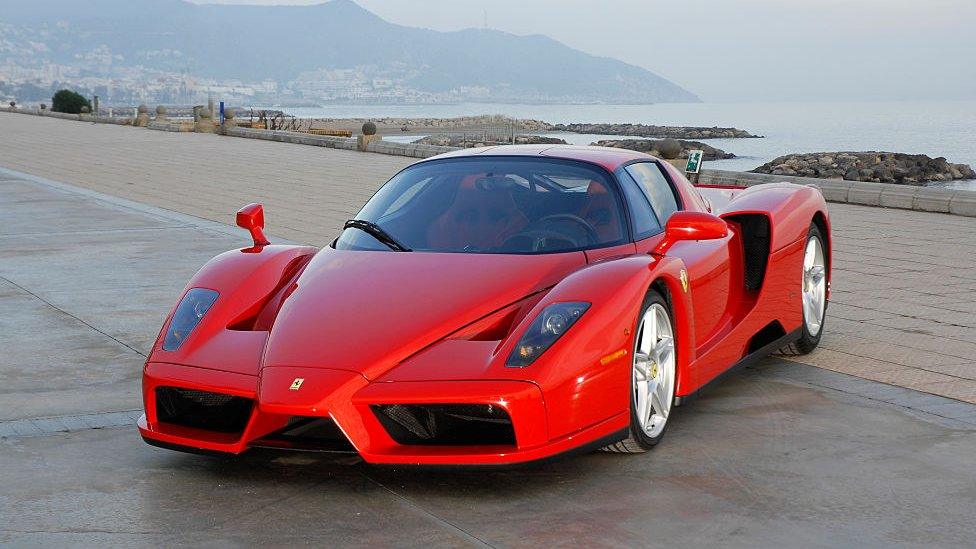
Thailand imposes taxes of more than 300% on supercars l
Some are stolen in other countries and smuggled in. Confiscated cars are auctioned, and until recently the police and officials were paid "finders fees" of around half the value, netting well-connected officers millions of dollars.
Thai customs officials say Mr Thitisant confiscated 368 such cars since 2011, which could potentially have earned him around 400 million baht.
In 2009 he married into a wealthy family, posting pictures enjoying high society events with his new wife.
Then in 2014 he made headlines by proposing marriage to a high-profile actress in a videoed ceremony, going down on one knee with a large bouquet of flowers.
When challenged over his existing marriage, he said he had left his wife, but the actress refused him. In 2017 she told Thai media, external he had promised her 230 million baht in cash.
He has most recently been in a relationship with another well-known television personality, whose father was his boss, the powerful regional police commander in northern Thailand where Mr Thitisant's last two postings were.
With his flamboyant lifestyle and conspicuous taste for luxury cars, Mr Thitisant made no effort to hide his wealth.
After all, many of Thailand's most senior police officers declare millions of dollars in assets they could not possibly have accrued on their regular salaries.
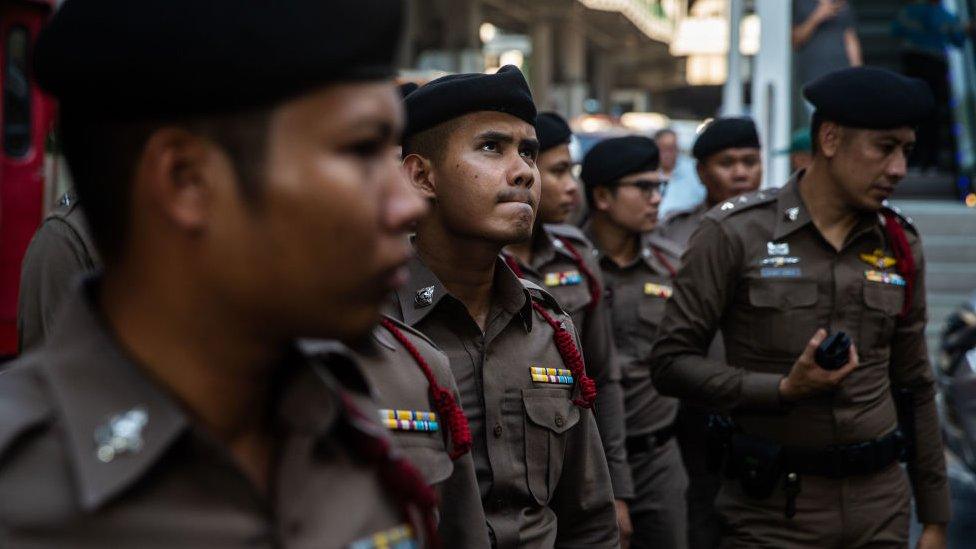
Thailand's police have an essential role in the opaque power networks which run the country
This year Forbes listed, external a recently-retired deputy police chief, Wirachai Songmetta, as the 36th wealthiest man in Thailand, based on a substantial energy business his family owned and ran for many years even while he was rising up the ranks. Top policemen can expect to move into other lucrative senior positions, in politics or business.
Getting rich in the police is easy, because in a country where law enforcement is, to put it politely, flexible, there are endless opportunities to make money.
"There are so many that I can't name them all," says Major Chavalit Laohaudomphan, a former police officer and now an MP in the opposition Move Forward party.
"Let's just say that for anything that's illegal, the police can ask for bribes to turn a blind eye. Even for ordinary citizens who come for help, like those who need the police to hunt down a culprit for them - the police also ask for money in the form of 'the cost to proceed the case'.
"And remember, lower-ranked police officers then have to pay their bosses, to ensure they rise to a position where they can make even more money."
One of the lawyers who received the leaked video says Mr Thitisant was heard demanding a substantial bribe, while suffocating the unfortunate suspect.
Informed sources believe that, though a fast-rising star in the police, he was just a cog in the money-making machinery, making plenty himself, but funnelling much of it up to more powerful players, who, until his misjudgement with the plastic bags, would almost certainly have protected him.
Successive Thai governments have promised to reform the police, but none of those promises has yet been fulfilled.
- Published27 August 2021
